Sweet and Dour: Ann Arbor's Seaholm mixes pop-punk with dark lyrics on "It's Raining Outside"

If there was any doubt that a good pop-punk/power pop band can still cut through the musical clutter and make a powerful statement, Ann Arbor-based Seaholm proves it with style.
For example, check out “Cough Syrup,” a terrific single and video from the band’s new album, It’s Raining Outside. In just 2:11, the band offers a tremendous burst of musical energy, memorable visuals, and an earworm (“Can you please tell me what’s going on?”) that will stick with you for days.
It’s Raining Outside is a short, sharp album that displays the band’s talent for combining dynamic musicianship with thoughtful lyrics. On “Weatherman,” the album’s keystone, they sing: “What’s the weather like today? / I want the rain to wash me away / Cleanse me of my guilt and take me home / Say goodbye to the life that I’ve always known.”
Although an earlier lineup did some recordings, It’s Raining Outside fully introduces the current band, which consists of Pat Ray on guitar and vocals, Austin Stawowczyk on bass and vocals, and Kris Herrmann on drums and vocals.
Ray answered a few questions about Seaholm's history and new album via email.
Human Nature: U-M prof Scott Hershovitz talks philosophy with his kids in the book "Nasty, Brutish, and Short"
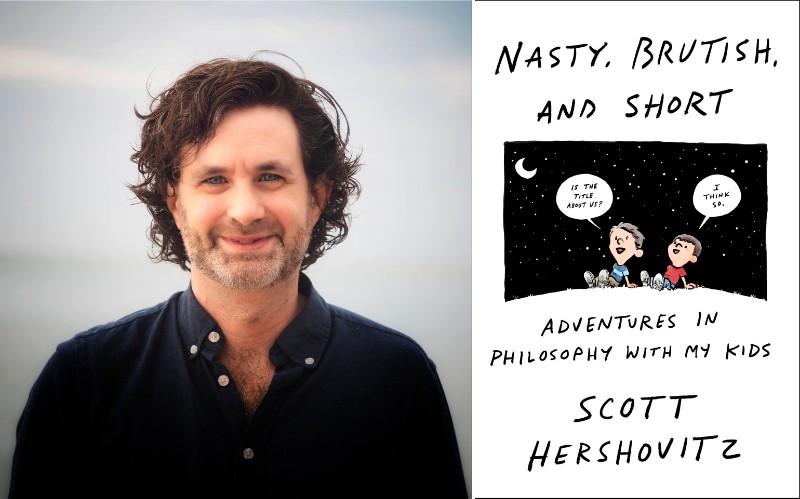
U-M professor Scott Hershovitz divulges conversations with his two young sons and connects those chats to philosophical concepts in his new book, Nasty, Brutish, and Short: Adventures in Philosophy With My Kids. Among the topics are swearing, sports, racism, and religion.
Hershovitz delves into both questions that his children raise and questions that he and his wife, Julie, face as parents. What makes the book so approachable is that the conversations are set in humous, relatable, day-to-day scenarios. For example, the subject of individual rights emerges when one of the children, Hank, takes ages to decide what to have for lunch after being offered a quesadilla or hamburger:
Shirley Ann Higuchi tells her mother's tale and the bigger story of the Japanese American incarceration during WWII in “Setsuko’s Secret”
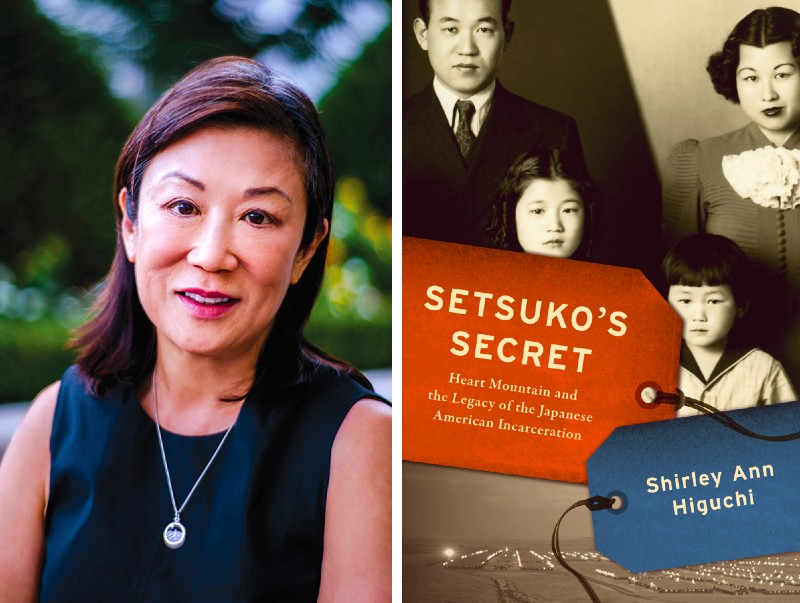
Shirley Ann Higuchi illuminates a dark time in U.S. history in her book, Setsuko’s Secret: Heart Mountain and the Legacy of the Japanese American Incarceration.
Through the lens of long unspoken family stories, Higuchi recounts how Japanese Americans were removed from their homes and businesses, then forced to live in one of the 10 concentration camps created during World War II as the result of unfounded security concerns. The memories and trauma of that time are still felt today.
Higuchi, who grew up in Ann Arbor and went to the University of Michigan, will speak about her book at the downtown Ann Arbor District Library on Thursday, September 22, 6:30-7:30 pm. She is a lawyer for the American Psychological Association, a past president of the D.C. Bar, and chair of the Heart Mountain Wyoming Foundation, which operates a museum on the site of the former camp.
In Setsuko’s Secret, Higuchi writes of the camp where her parents met, Heart Mountain:
Ann Arbor musician and artist Jib Kidder conquered AADL's 2022 Summer Game
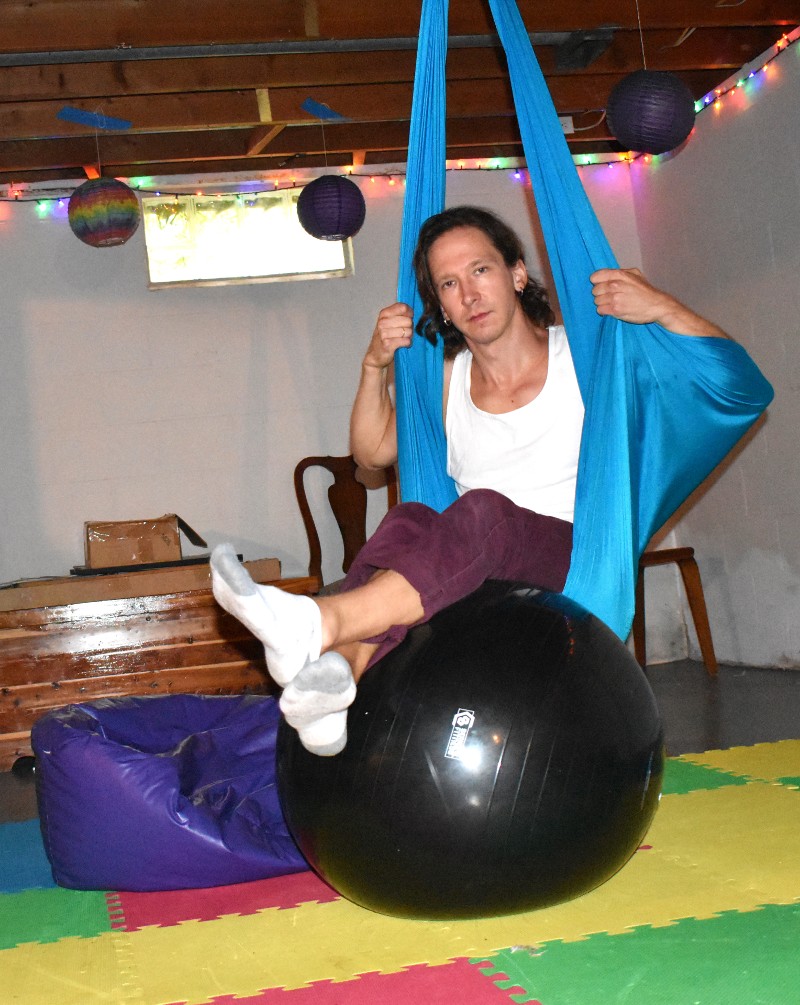
When the Ann Arbor District Library's 2022 Summer Game came to a close on August 28, one name was top of the leaderboard among the record-breaking 10,114 participants:
That name might be unfamiliar to you if you're not into underground electronic music—or missed the 2013 episode of So You Think You Can Dance that featured a guy getting down to "Windowdipper," Kidder's booty-bass track built from samples culled from the Windows operating system.
But for the past 15 years, the man born Sean Schuster-Craig has explored the more esoteric and experimental side of electronic music with relentless vigor while never losing track of the beat. When listening to his music, I kept thinking of the out-there sounds of Aphex Twin and Autechre if they kept their love of hip-hop in the foreground, but Jib Kidder cuts a singular figure as a creative individual.
Whether as a musician, visual artist, video creator, or in the case of our email conversation below, a writer, Kidder approaches his creative endeavors with a slice-and-dice intellectualism that mixes collage, social theory, and humor. (A recent post on his sometimes inscrutable Instagram account features an image with the words "philosophy is just electronic music but words," which seems an indicator of his approach to the arts.)
Kidder cites Weird Al as an early influence, but I have to think avant-garde art and political movements like the anti-capitalist Dadaists and Situationists are right up there, too, alongside his professed love of 1990s Southern hip-hop and, as he told me in one email, "Lindsey Buckingham and Roy Orbison - huge influences." (Kidder is also a classically trained guitarist in addition to being a sampling savant.)
Ann Arbor electronic-music producer Jack Withers turns sadness into sound on his new album, "The Price of Beauty"
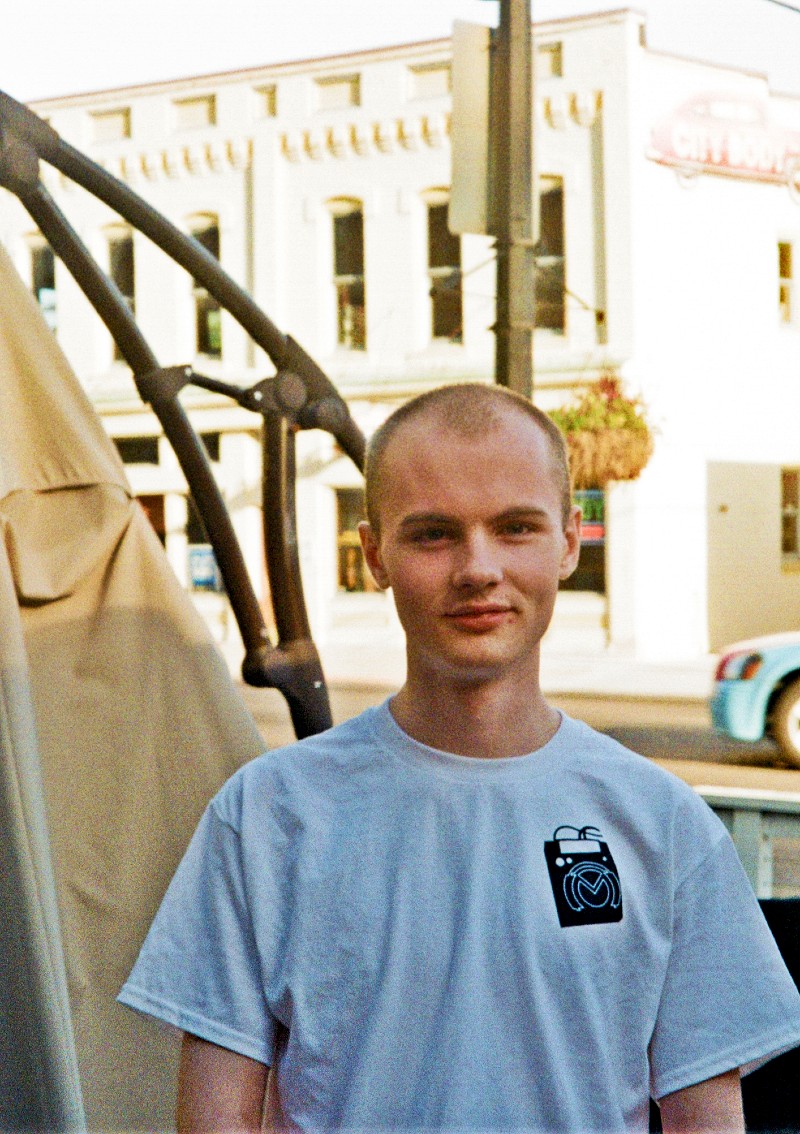
How does an artist alchemize sadness into something beautiful?
Ann Arbor producer Jack Withers ponders this question on his third album, The Price of Beauty.
Withers has released music consistently since around 2019 and is heavily involved in the electronic music community in Ann Arbor as co-president and graphic designer for the Michigan Electronic Music Collective. His music, with influences from Aphex Twin to Flume, ranges from energetic drum 'n' bass to organic ambient sounds.
The Price of Beauty is Wither's shortest album. It's also his most experimental while at the same time feeling the most grounded, perhaps due to a more pared-down sound.
We talked with Withers about his new album, his work, and what’s next.
Future State: The Portingales draw from past experiences on “Paint a Little Tree” album

The Portingales thoughtfully depict the future on Paint a Little Tree.
The second album by the Ann Arbor indie-rock duo of Phillip Campbell (vocals, guitars, bass, drums, piano) and V. Rose Cieri (vocals, violin, viola, cello) explores how past experiences, relationships, and life lessons affect how we handle what’s to come.
“I really feel like the theme of this album is ... ‘Your life is what you’re going to make of it. What choices today will you [make] to create the life that you want for yourself while coming to terms with where you’ve been?’” Campbell said. “It’s very much an album at the crossroads of life where you’re sorting things out.”
At that pivotal moment, The Portingales hover between a glistening hope and a haunting melancholy on Paint a Little Tree. Each track elicits a deep search for identity and purpose while tackling longtime challenges and setbacks.
Look Up: Astronomy at the Beach returns for first in-person event since 2019—and will create a comet

Astronomy at the Beach (AATB) is an annual two-day event each fall sponsored by the Great Lakes Association of Astronomy Clubs. This year AATB will take place in person after two years as a virtual-only event. It runs September 16 and 17, from 4 pm until midnight each day, at the Island Lake Picnic Grounds inside Island Lake State Recreation Area in Brighton, Michigan.
We asked AATB’s communications volunteer Brian Ottum to give us an overview of the event and what we can expect this year.
Agent Audio: Ypsilanti label AGN7 runs a stealth operation dedicated to drum 'n' bass music

Scrolling through Bandcamp’s releases tagged “Ypsilanti,” it won’t be long before you find a mysterious label called AGN7 Audio that's releasing top-notch new drum 'n' bass songs and albums—along with some techno and dub—by artists from around the world.
Founded in 2015, AGN7—pronounced “Agent"—is one of the few modern labels to focus so deeply on d 'n' b, also known as jungle, which started in the early '90s U.K. rave scene and is characterized by fast, skittering breakbeats and a dystopian-funk vibe.
Despite garnering respect among hardcore junglists, there’s not much AGN7 information or media coverage out there, and the label tends to keep a low profile. So we reached out to AGN7 co-founder and current chief, Aaren Alseri—aka Ronin Selecta in his DJ days—to learn about the label's origin, influences, and future.
In U-M prof Jacinda Townsend’s “Mother Country,” one woman claims another’s daughter and perpetuates family patterns
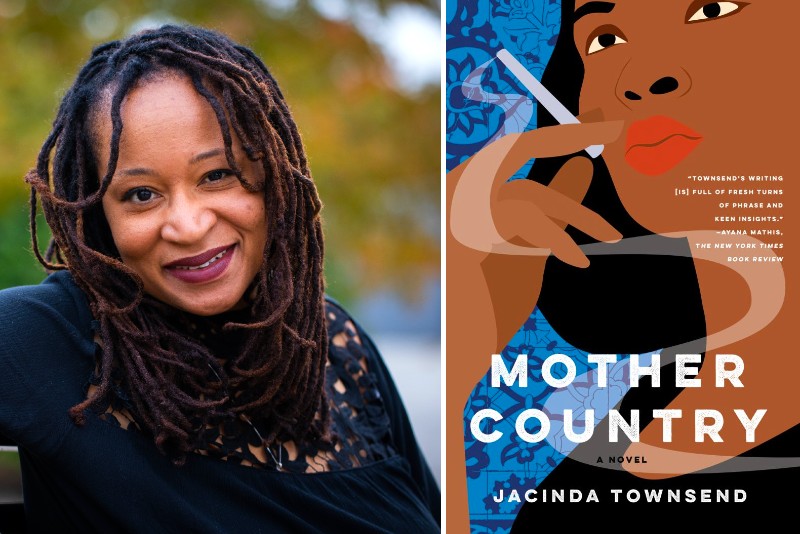
“Some people wanted freedom, she thought, and others wanted safety. She’d never find the two in the same place.”
This reflection by the character, Souria, in Mother Country weighs the impossible choices that characters make—or are forced to make. Jacinda Townsend’s new novel examines the repercussions of human trafficking, the implications of family bonds, and cross-continental ties. Townsend is the Helen Zell Visiting Professor in Fiction at the University of Michigan. She is also the author of the novel Saint Monkey.
In Mother Country, when one mother, Souria, loses her child in Marrakech, another woman, Shannon, becomes a mother, gains a daughter, and brings her to Louisville, Kentucky, even though the events leading up to the switch—and also following it—are problem-ridden. Shannon learns, “The right thing never felt like the good thing.”
Souria’s and Shannon’s lives intertwine in ways made more visible by chapters that alternate between narrating their two separate lives. Later on, the perspective of the daughter—once known as Yumni, then as Mardi—emerges, as well as that of Vlad, who is Shannon’s husband. They all are cognizant of their missteps in life, but there is no turning back to change them. For example, Shannon, who often gets high to blunt the lingering pain from her near-fatal car wreck, perceives her flaws, yet cannot remedy them:
The book “Kelly Hoppenjans Takes Herself Too Seriously” plays with the poetics of the Ann Arbor indie rocker's lyrics

What makes a poem versus a song?
Setting the words to music may be an obvious answer, but the difference between the page and the studio are more complex than that.
In her new book, Kelly Hoppenjans Takes Herself Too Seriously: A Collection of Poems, Music, Lyrics, and Some Real Arty Shit, the indie rock singer-songwriter and graduate student at the University of Michigan draws attention to the lyrics from her recent Can’t Get the Dark Out EP and the divergent forms of poetry and lyrics.
As she told Pulp, “To me, lyrics and poetry are separate forms, and the process for each is quite different.”


































